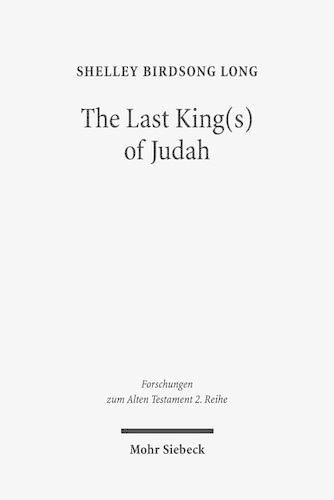Readings Newsletter
Become a Readings Member to make your shopping experience even easier.
Sign in or sign up for free!
You’re not far away from qualifying for FREE standard shipping within Australia
You’ve qualified for FREE standard shipping within Australia
The cart is loading…






Zedekiah ben Josiah was the last king of Judah, and under his leadership, in 586 BCE, Jerusalem was destroyed. Interestingly, the Hebrew and Old Greek versions of Jeremiah present very different portrayals of Zedekiah, prompting a variety of literary and historical-critical questions. In this study, Shelley L. Birdsong uses a multi-critical approach to highlight the two unique characterizations of Zedekiah and address their relationship text- and form-critically. She argues that the Greek text depicts Zedekiah as a manipulative and mysterious Machiavellian prince, whereas the Hebrew presents him as a hesitant and kind king who metaphorically mirrors the fall of his capital. Following this literary comparison, the author employs several scholarly methods to substantiate the claim that the Hebrew text is a later edited text. Overall, she demonstrates the importance of doing character studies in Septuagint scholarship and using multiple methods to create a more comprehensive picture of biblical characters.
$9.00 standard shipping within Australia
FREE standard shipping within Australia for orders over $100.00
Express & International shipping calculated at checkout
Zedekiah ben Josiah was the last king of Judah, and under his leadership, in 586 BCE, Jerusalem was destroyed. Interestingly, the Hebrew and Old Greek versions of Jeremiah present very different portrayals of Zedekiah, prompting a variety of literary and historical-critical questions. In this study, Shelley L. Birdsong uses a multi-critical approach to highlight the two unique characterizations of Zedekiah and address their relationship text- and form-critically. She argues that the Greek text depicts Zedekiah as a manipulative and mysterious Machiavellian prince, whereas the Hebrew presents him as a hesitant and kind king who metaphorically mirrors the fall of his capital. Following this literary comparison, the author employs several scholarly methods to substantiate the claim that the Hebrew text is a later edited text. Overall, she demonstrates the importance of doing character studies in Septuagint scholarship and using multiple methods to create a more comprehensive picture of biblical characters.